Children’s Dentist Jacksonville
High-Quality Dentistry for Smiles of All Ages
Why go to the trouble of seeing a separate specialist for your child’s dental care when you can bring everyone to the same practice? Our team at Baldwin Dental of Jacksonville loves having the opportunity to teach little ones more about dentistry and caring for their smiles, and we will always treat them in a gentle, caring manner so that they can look back and say their initial impressions of the dentist’s office and oral healthcare were positive ones. Don’t hesitate to call us if it has been at least six months since your child’s last dental checkup; our children's dentists in Jacksonville are here to help!
Why Choose Baldwin Dental of Jacksonville for Children’s Dentistry?
- Dental Team with Years of Experience
- Comprehensive Services Under One Roof
- Comfort is Our Top Priority
Your Child’s First Dental Visit
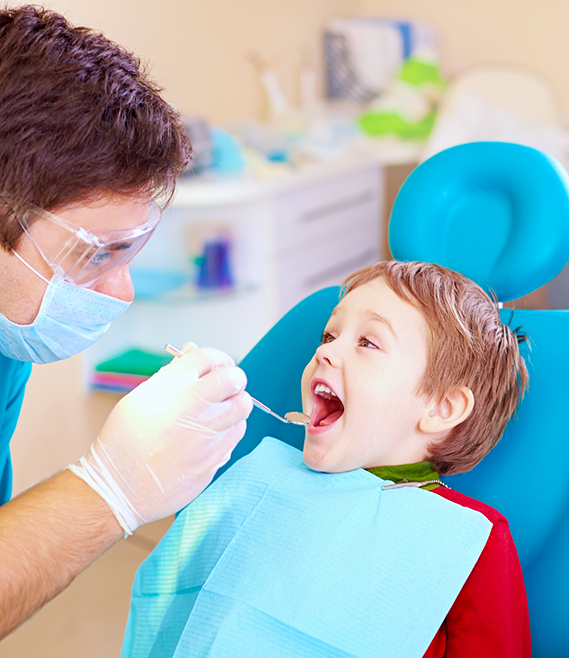
The first appointment is all about helping your child relax and ensuring they become acclimated to the dental office environment. We’ll spend the first visit helping them get used to their surroundings and the sights and sounds of our practice. The initial visit is also our chance to take note of any potential developmental problems that you need to know about as soon as possible so that the appropriate interventions can be planned well in advance. It’s important for them to feel like our practice is a safe place to be, and we’ll do everything we can on our end to make this happen.
Dental Sealants
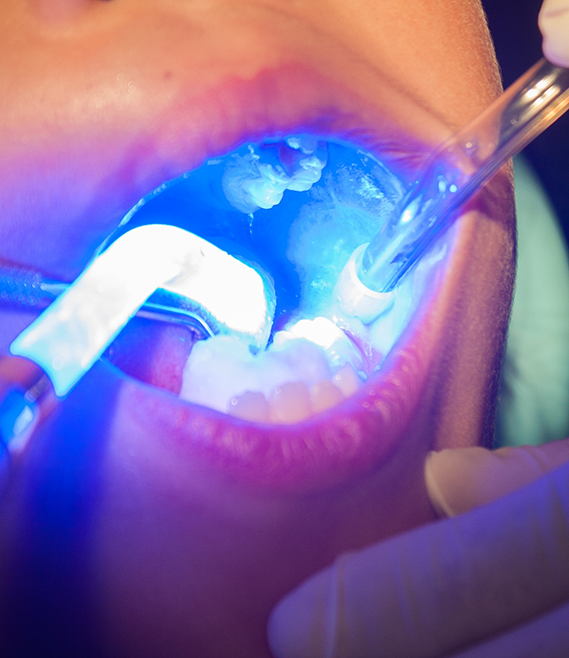
Even if your child is old enough to brush their teeth on their own, they might still have trouble cleaning certain spots in the mouth despite their best efforts. For example, the molars are particularly difficult to keep clean due to their location and the various crevices and grooves on their surfaces. Dental sealants can give these teeth a little extra protection by sealing off these areas so that bacteria and food particles don’t settle into the hard-to-reach spaces.
Athletic Mouthguards/ Sportsguards
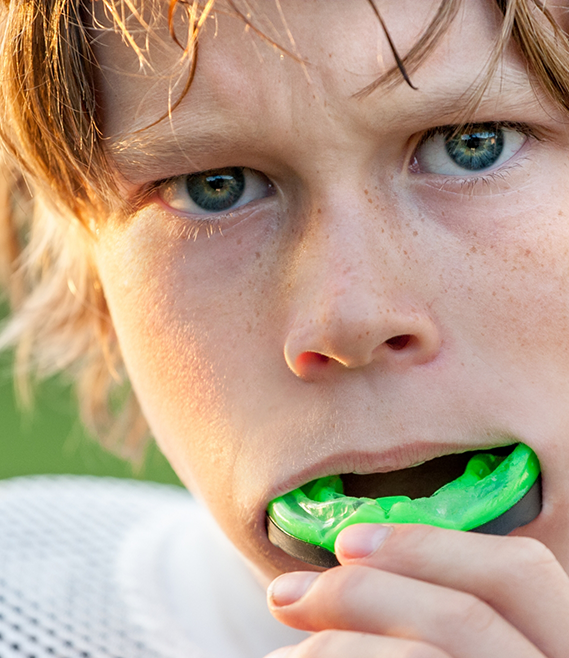
Different sports have different requirements, but your little one should always make sure their smile is protected against potential accidents and sudden impacts. Of all the equipment out there, athletic mouthguards stand out as exceptionally useful at protecting the teeth. A mouthguard designed by our team is far more personalized than one that is found at the store; it can be customized to fit each unique smile, which in turn improves its ability to keep your young athlete’s smile safe from serious harm.
Silver Diamine Fluoride
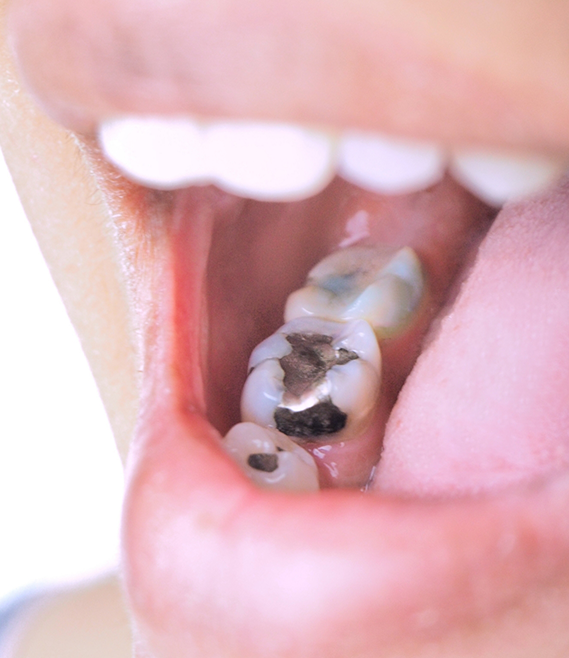
Cavities should never be ignored, and often a filling is the best way of addressing one. However, that doesn’t necessarily have to mean using a dental drill to place one. There is a much gentler alternative for treating minor tooth decay in children: silver diamine fluoride. Not only does this solution help kill the bacteria causing decay, but it also works to remineralize the tooth itself, which stops existing cavities from getting worse and strengthens the enamel.
Special Needs Children’s Dentistry

Every child is different, and our team will always adjust our approach based on your little one’s needs. Please let us know ahead of time if your child has a developmental disability, Down syndrome, a physical disability, or any other condition that could potentially affect the quality of their dental care. We will be sure to make the necessary accommodations before and during your visit to ensure a positive, stress-free experience for everyone involved.
Frenectomies/ Lip & Tongue-Tie Treatment
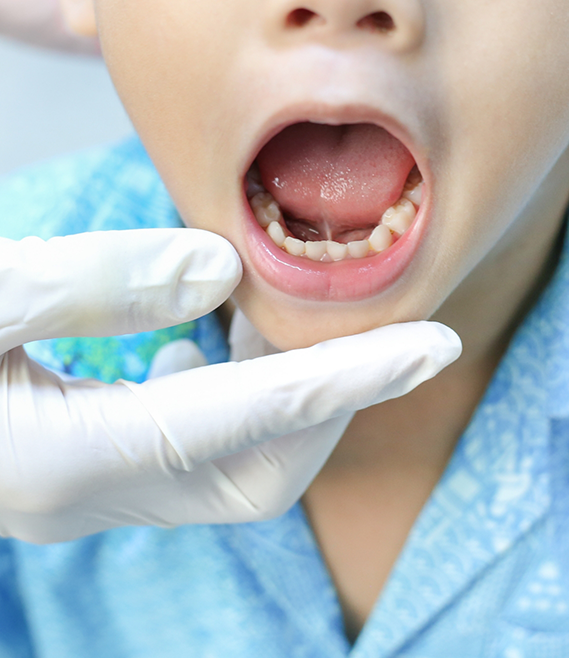
The mouth has two thin connective tissues called frenum. One attaches the tongue to the lower part of the mouth, and the other attaches the top lip to the gums. An overly large or otherwise restricted frenum can stop your child from moving their lip or tongue properly, which can in turn negatively impact their eating and speaking capabilities. By gently removing a small amount of excess tissue, we can free up your child’s mouth and prevent further development problems.
Pulp Therapy
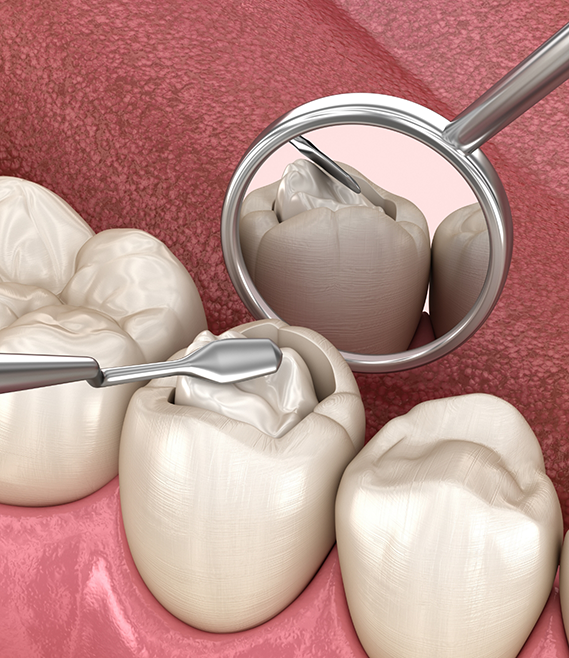
In order to save an infected tooth without removing it, we’ll need to treat the soft tissue known as the pulp that lies beneath the enamel. There are two types of pulp therapy that we might recommend in these scenarios. A pulpotomy involves removing certain parts of the pulp to stop the infection from spreading. A pulpectomy, on the other hand, refers to the complete removal of the pulp, which is only done if the tissue is too decayed to be worth saving.

